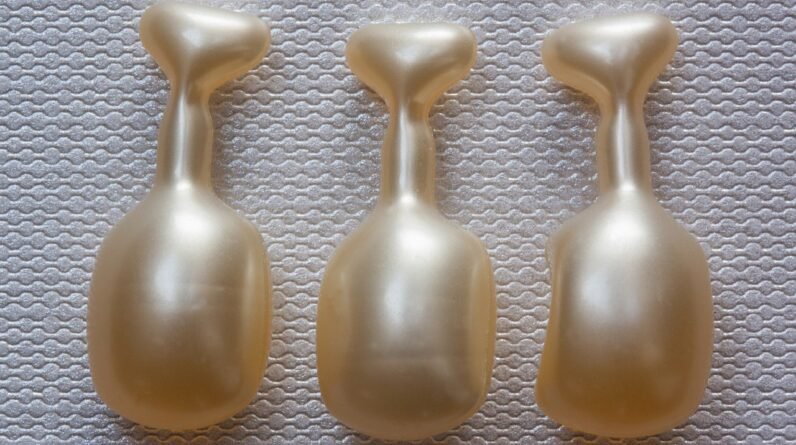
Imagine being able to protect your skin from harmful UV rays and fight against the signs of aging at the same time. With antioxidants sunscreen, you can do just that. This revolutionary product combines the power of antioxidants with the sun-protecting properties of a sunscreen, resulting in a skincare must-have. By shielding your skin from damaging free radicals and preventing sunburn, antioxidants sunscreen not only keeps you safe from harmful rays but also helps to keep your skin looking youthful and radiant. Say goodbye to the days of choosing between sun protection and skincare benefits – antioxidants sunscreen is here to give you the best of both worlds.

This image is property of pixabay.com.
What are antioxidants?
Definition of antioxidants
Antioxidants are substances that help protect your skin against damage caused by free radicals. Free radicals are unstable molecules that can cause oxidative stress in your body, leading to premature aging, sunburn, and even skin cancer. Antioxidants work by neutralizing these harmful free radicals, preventing them from causing further damage to your skin cells.
Importance of antioxidants for the skin
Antioxidants play a crucial role in maintaining the health and appearance of your skin. They help counteract the effects of environmental factors, such as sun exposure, pollution, and stress, that can cause damage to the skin’s DNA and collagen. By protecting the skin from oxidative stress, antioxidants help keep your skin looking youthful, reduce the appearance of wrinkles, and even out skin tone.
Types of antioxidants
There are various types of antioxidants that can benefit your skin in different ways. Some of the most common antioxidants used in skincare products include Vitamin C, Vitamin E, green tea extract, resveratrol, coenzyme Q10, and ferulic acid. Each of these antioxidants has its unique properties and benefits, making them suitable for different skin concerns and needs.
How do antioxidants work?
Mechanism of action
Antioxidants work by neutralizing free radicals, which are unstable molecules that can cause oxidative stress in your body. When a free radical comes into contact with an antioxidant, it donates an electron to the free radical, stabilizing it and preventing it from causing further damage. In this way, antioxidants act as scavengers, protecting your skin cells from oxidative stress and maintaining their health.
Free radicals and oxidative stress
Free radicals are highly reactive molecules that are formed as a byproduct of natural bodily processes or through exposure to external factors such as pollution, cigarette smoke, and UV radiation. These free radicals can damage your skin cells’ DNA, proteins, and lipids, leading to premature aging and other skin problems. This process is known as oxidative stress.
Role of antioxidants in neutralizing free radicals
Antioxidants play a crucial role in neutralizing free radicals and preventing oxidative stress. By donating an electron to a free radical, antioxidants stabilize it and stop it from causing further damage. Furthermore, some antioxidants have the ability to regenerate and recycle other antioxidants in your skin, maximizing their protective effects and ensuring long-lasting antioxidant activity.
Why is sun protection important?
Impact of sun exposure on the skin
Sun exposure is a major factor in skin damage and premature aging. The sun emits ultraviolet (UV) radiation, which can penetrate the skin and cause various harmful effects, such as sunburn, inflammation, and DNA damage. Prolonged or excessive sun exposure can lead to significant skin problems, including wrinkles, age spots, a weakened immune system, and an increased risk of skin cancer.
Sunburn, premature aging, and skin cancer
Sunburn is a common consequence of excessive sun exposure and occurs when the skin is damaged by UVB radiation. Prolonged exposure to the sun’s UVA and UVB rays can also accelerate the aging process, causing premature wrinkles, fine lines, and age spots. More importantly, exposure to UV radiation is a major risk factor for skin cancer, including melanoma, the deadliest form of skin cancer.
Need for effective sun protection strategies
Given the harmful effects of sun exposure, it is vital to adopt effective sun protection strategies to safeguard your skin. While avoiding the sun during peak hours and wearing protective clothing are essential, the consistent use of sunscreen is especially crucial. Sunscreen helps shield your skin from harmful UV rays and minimizes the risk of sunburn, premature aging, and skin cancer.
Understanding sunscreen
What is sunscreen?
Sunscreen is a topical product that provides a protective barrier between your skin and the sun’s harmful rays. It contains ingredients that either physically block or chemically absorb UV radiation, allowing you to enjoy outdoor activities while minimizing sun damage to your skin.
Different types of sunscreens
There are two main types of sunscreens: physical (mineral) and chemical sunscreens. Physical sunscreens contain ingredients like zinc oxide and titanium dioxide, which create a physical barrier on the skin’s surface and reflect UV radiation away from your skin. Chemical sunscreens, on the other hand, contain organic compounds that absorb UV rays and convert them into heat, dissipating them from your skin.
SPF rating and its significance
Sun Protection Factor (SPF) is a measure of a sunscreen’s ability to protect your skin from UVB radiation, which causes sunburn. The SPF rating indicates how much longer it would take for your skin to burn when wearing sunscreen compared to not wearing any. For example, if it takes 10 minutes for your skin to burn without sunscreen, applying SPF 30 would provide you with 30 times the protection, allowing you to stay in the sun for 300 minutes (10 minutes x 30).

This image is property of pixabay.com.
Role of antioxidants in sunscreen
Adding antioxidants to sunscreen
Many sunscreen formulations now include antioxidants in addition to UV filters. Antioxidants help enhance the sun protection provided by sunscreen by neutralizing free radicals that are generated when UV rays penetrate the skin. By incorporating antioxidants into sunscreen, manufacturers aim to provide a more comprehensive defense against sun damage and oxidative stress.
Benefits of combining antioxidants and sunscreen
The combination of antioxidants and sunscreen offers several advantages. Firstly, antioxidants can help neutralize free radicals that are generated by UV radiation, reducing the oxidative stress caused by sun exposure. Furthermore, certain antioxidants, such as Vitamin C and Vitamin E, have been shown to enhance the effectiveness of sunscreens and inhibit the formation of UV-induced reactive oxygen species. This synergistic effect may lead to improved sun protection and better long-term skin health.
Effective antioxidants for sun protection
Vitamin C
Vitamin C is a powerful antioxidant that helps protect your skin against damage from UV radiation and other environmental stressors. It can also stimulate collagen production, brighten the skin, and even out skin tone. Look for sunscreens formulated with stable forms of Vitamin C, such as ascorbic acid or ascorbyl glucoside, for optimal sun protection benefits.
Vitamin E
Vitamin E is another potent antioxidant that helps protect your skin from sun damage. It works synergistically with Vitamin C to neutralize free radicals and prevent oxidative stress. Additionally, Vitamin E has moisturizing properties and can help soothe and repair damaged skin.
Green tea extract
Green tea extract contains polyphenols, which are powerful antioxidants known for their protective effects against UV radiation. Green tea extract can help reduce inflammation, protect against sunburn, and minimize the harmful effects of UV-induced free radicals on the skin.
Resveratrol
Resveratrol is a natural compound found in grapes, berries, and certain plants. It has potent antioxidant and anti-inflammatory properties. Studies have shown that resveratrol can protect the skin from UV-induced damage, reduce inflammation, and improve overall skin health.
Coenzyme Q10
Coenzyme Q10 is an antioxidant naturally present in the body. It helps protect the skin from oxidative stress and has been shown to reduce skin damage caused by UV radiation. Coenzyme Q10 can also support the production of collagen, improving the skin’s elasticity and reducing the appearance of wrinkles.
Ferulic acid
Ferulic acid is a plant-based antioxidant that can enhance the protective effects of Vitamin C and Vitamin E. When combined with these antioxidants, ferulic acid increases their stability and effectiveness in neutralizing free radicals induced by UV exposure. This powerful combination can provide enhanced sun protection and anti-aging benefits.

This image is property of pixabay.com.
Scientific evidence and studies
Research on the effectiveness of antioxidants in sunscreen
Numerous studies have investigated the efficacy of antioxidants in sunscreen formulations. Research has shown that incorporating antioxidants into sunscreens can enhance their photoprotection abilities, reduce the formation of sunburn cells, and mitigate the harmful effects of UV radiation on the skin.
Clinical trials and outcomes
Clinical trials have also demonstrated the benefits of antioxidant sunscreen. For example, a study published in the Journal of Investigative Dermatology found that a sunscreen formulation containing antioxidants provided significant protection against UV-induced erythema (redness) and DNA damage compared to a sunscreen without antioxidants.
Findings on the long-term benefits
Long-term studies have revealed the potential of antioxidant sunscreen in reducing the visible signs of aging and protecting against skin cancer. By preventing damage from UV-induced oxidative stress, antioxidant sunscreen may help maintain the skin’s youthful appearance and reduce the risk of developing skin cancer later in life.
Tips for choosing an antioxidant sunscreen
Look for broad-spectrum protection
When choosing an antioxidant sunscreen, ensure it offers broad-spectrum protection. This means that it protects against both UVA and UVB radiation. UVA rays can penetrate deep into the skin, causing long-term damage, while UVB rays primarily cause sunburn. Broad-spectrum protection ensures comprehensive defense against both types of UV radiation.
Check for the presence of antioxidants
Read the ingredient list of sunscreen products and look for antioxidants such as Vitamin C, Vitamin E, green tea extract, resveratrol, coenzyme Q10, or ferulic acid. Having these antioxidants in your sunscreen can provide additional protection against free radicals and oxidative stress.
Consider your skin type and preferences
It is important to select a sunscreen that suits your skin type and preferences. If you have sensitive skin, opt for a sunscreen that is fragrance-free and hypoallergenic. If you prefer a lightweight formula, choose a sunscreen with a serum or gel-like consistency. There are also tinted sunscreens available to match various skin tones, providing added coverage and convenience.

How to incorporate antioxidant sunscreen into your skincare routine
Cleanse and moisturize your skin
Before applying antioxidant sunscreen, make sure to cleanse your skin thoroughly and moisturize it. This helps prepare your skin for the sunscreen application and ensures better absorption of the product.
Apply antioxidant sunscreen before sun exposure
To maximize sun protection, apply antioxidant sunscreen generously to all exposed areas of your skin at least 15-30 minutes before going outside. Be sure to cover areas that are often overlooked, such as the ears, neckline, and the back of your hands.
Reapply regularly and as directed
Regardless of the SPF rating or presence of antioxidants, sunscreen should be reapplied every two hours or more frequently if you are swimming, sweating heavily, or wiping your face with a towel. Follow the reapplication guidelines provided on the sunscreen packaging for optimal protection throughout the day.
Conclusion
Overview of the benefits of antioxidant sunscreen
Antioxidant sunscreen offers a multifaceted approach to sun protection and anti-aging. By combining the benefits of UV filters and antioxidants, these sunscreens can help shield your skin from harmful UV radiation, neutralize free radicals, and prevent oxidative stress. This comprehensive protection aids in maintaining a youthful appearance, reducing the risk of sunburn, premature aging, and even skin cancer.
Importance of sun protection and anti-aging measures
Incorporating antioxidant sunscreen into your daily skincare routine is essential for maintaining healthy and youthful-looking skin. Remember that sun protection goes beyond just sunscreen; it encompasses wearing protective clothing, seeking shade during peak sun hours, and adopting other smart sun safety strategies. By taking these measures, you can enjoy the sun responsibly while safeguarding the long-term health and beauty of your skin.








